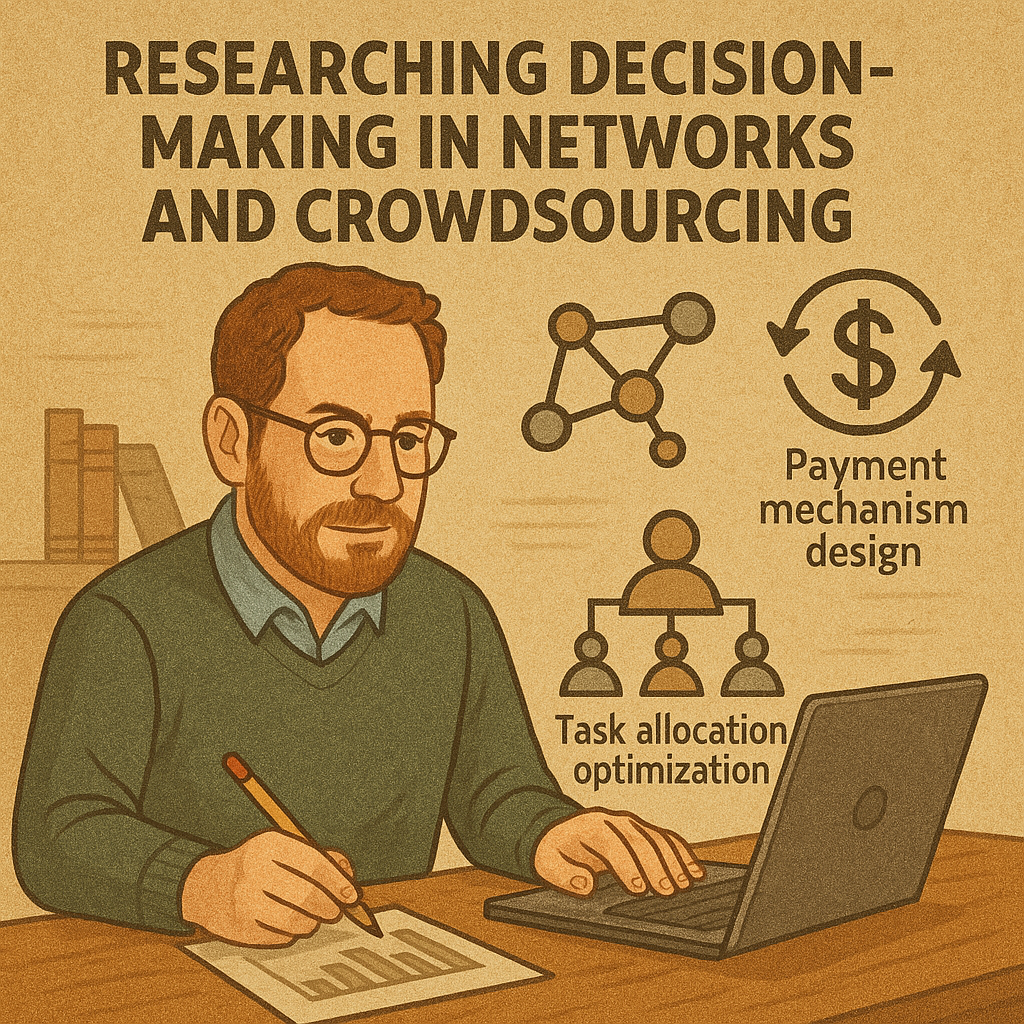Incentive Design
Mechanism design for strategic decision-making in networks and crowdsourcing
How do you design systems where selfish behavior leads to good outcomes? Through mechanism design—creating rules and incentives that align individual interests with collective goals. We develop strategies for e-commerce, team formation, and healthcare allocation.
Research Areas
E-commerce Platforms
Strategic information disclosure that helps buyers make better decisions while balancing platform profits and user welfare.
Team Formation
Strategy-proof mechanisms that make honesty the best policy. Form effective teams even when people might misreport skills.
Kidney Exchange
Credit-based systems preventing manipulation. Increase transplant efficiency while ensuring fairness.
Technical Approach
Mechanism Design Theory
Applying game theory and economic theory to design systems where truth-telling is the optimal strategy. Mathematical proofs of strategy-proofness and efficiency.
Strategic Intelligence
Understanding how information revelation affects decision-making. Timing and sequencing of information to improve outcomes.
Fairness and Efficiency
Balancing individual incentives with collective welfare. Ensuring systems are both efficient and fair.
Applications
Digital Platforms
E-commerce platforms implementing strategic information disclosure. Team formation systems for organizations.
Healthcare
Kidney exchange programs in hospital systems. Medical resource allocation mechanisms.
General Markets
Any system requiring coordination among self-interested parties. Applications in AI agent negotiations and blockchain consensus mechanisms.
Impact
Our research contributes to the design of digital platforms and healthcare systems. The work includes mechanisms implemented in real e-commerce platforms and kidney exchange programs, affecting millions of transactions and improving organ transplant outcomes.
Related Publications
2017
- Enhancing Comparison Shopping Agents Through Ordering and Gradual Information Disclosure2017Autonomous Agents and Multi-Agent Systems
- Selective Opportunity Disclosure at the Service of Strategic Information Platforms2017Autonomous Agents and Multi-Agent Systems
- Enhancing Crowdworkers’ Vigilance2017Twenty-Sixth International Joint Conference on Artificial Intelligence (IJCAI-17)
2016
- Extending Workers’ Attention Span Through Dummy Events2016Proceedings of the AAAI Conference on Human Computation and Crowdsourcing
2015
- Improving Comparison Shopping Agents’ Competence Through Selective Price Disclosure2015Electronic Commerce Research and Applications
- Strategy-Proof and Efficient Kidney Exchange Using a Credit Mechanism2015In proceedings of the Twenty-Ninth AAAI Conference on Artificial Intelligence
2014
- Advanced Service Schemes for a Self-Interested Information Platform2014Proceedings of the 2014 international conference on Autonomous agents and multi-agent systems
- Ordering Effects and Belief Adjustment in the Use of Comparison Shopping Agents2014Proceedings of the Twenty-Eighth AAAI Conference on Artificial Intelligence (AAAI 2014)
- Strategic Information Platforms: Selective Disclosure and the Price of Free2014Proceedings of the Fifteenth ACM conference on Economics and Computation
2013
- Search More, Disclose Less2013In proceedings of the Twenty-Seventh AAAI Conference on Artificial Intelligence
